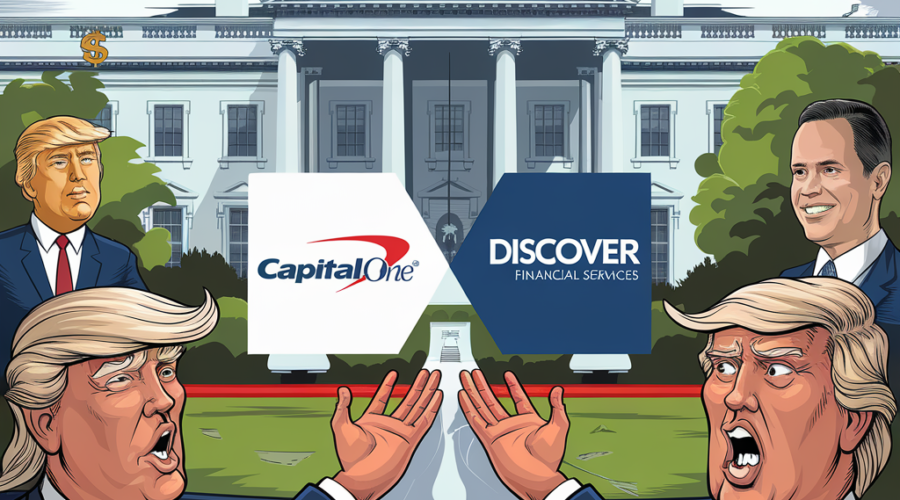- Regulatory Shift: The potential return of Donald Trump to the White House could significantly impact the proposed $35 billion Capital One-Discover merger, either easing or complicating regulatory approval.
- Market Reaction: Shares of Capital One and Discover soared by up to 19% and 24% respectively after news of Trump’s potential victory, indicating growing market confidence in the merger’s likelihood.
- Historical Context: Trump’s presidency was marked by deregulatory efforts, particularly in the banking sector, which could influence the current regulatory environment and create a more favorable climate for consolidation.
- Competitive Landscape: The merger would create the largest credit card issuer in the U.S. by loan volume, significantly impacting market competition and potentially reducing consumer choice.
- Regulatory Scrutiny: The deal requires approval from the Federal Reserve, OCC, and DOJ, with concerns raised about market concentration and consumer protection.
- Stakeholder Perspectives: Industry experts are divided, with some predicting a more supportive climate under Trump, while others remain skeptical about the deal’s impact on competition.
- Financial Industry Implications: A Trump administration’s lenient stance could lead to increased consolidation in the banking sector, potentially reducing competition and increasing market concentration.
- Consumer Impact: Critics argue the merger could result in higher fees and reduced choice for consumers, while proponents cite potential benefits of increased revenue and exposure.
- Precedent: Major bank mergers have historically faced intense scrutiny, with transparency and community benefits playing a crucial role in the approval process.
- Outlook: As the merger progresses, close monitoring of regulatory announcements and market reactions will be crucial in assessing the deal’s likelihood of approval under the prevailing political climate.
Trump’s Comeback: Capital One-Discover Merger in the Balance





